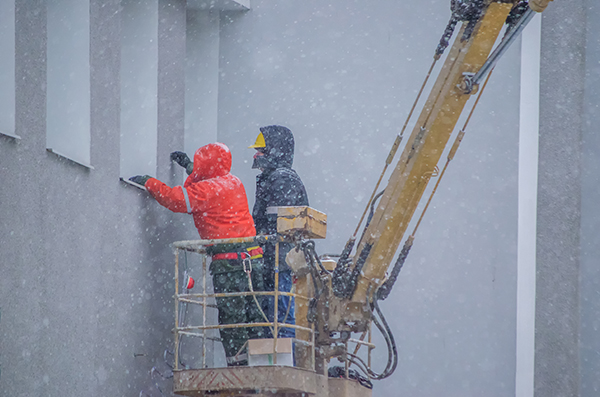Concrete Repair in Cold Weather
At Beacon Waterproofing, we aim to be a reliable information source for our customers. We recently came across an insightful article in the Concrete Repair Bulletin from the International Concrete Repair Institute (ICRI) that addresses challenges engineers, architects, and field teams face in cold weather concrete repairs. Here’s a simplified summary of the key points
Risks of Freezing Concrete
The article highlights the dangers of allowing concrete and repair mortars to freeze, which can cause ice crystals to form within the material, weakening its strength and durability. To prevent this, consider the following strategies:
- Heat ingredients before mixing
- Adjust mix designs or use different mortar materials
- Use non-chloride set accelerating admixtures
- Use insulated covers and forms
- Schedule work for early in the day
- Implement heated enclosures

Delayed Setting Times
Cold weather can also extend the setting time for concrete, causing issues like insufficient strength for supporting forms, shrinkage cracks, and finishing problems. Remember the "20-degree rule": for every 20°F variation from 70°F, setting time increases or decreases by 50%. Additionally, ensure all surfaces in contact with concrete are warmed to at least 35°F.
Improper Setting in Cold Weather
In cold conditions, the surface layer of concrete might dry too quickly, leading to cracks. To enhance curing, use methods like liquid curing compounds, insulated blankets, or plastic sheeting—just avoid adding water.
Risks of Thermal Shock
Even with precautions, thermal shock can occur when materials cool too rapidly. To minimize this risk, gradually remove protective coverings after the initial protection period, or keep them in place to allow slow cooling over 24 hours.
And when you need a technical professional to assist with your next cold weather concrete repair project, contact your Beacon Waterproofing sales representative.